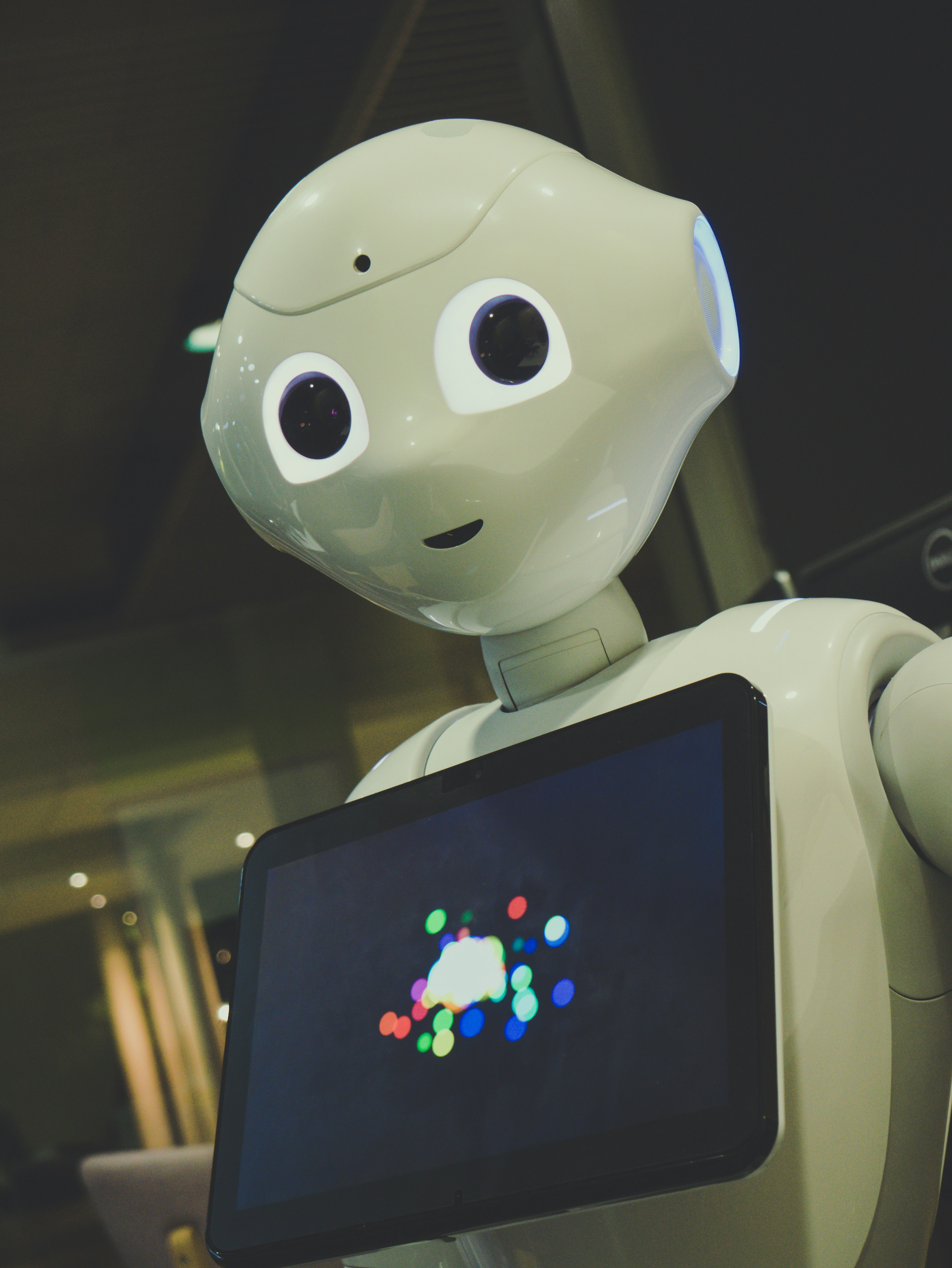
In the fast-paced world of marketing, artificial intelligence (AI) marks a significant shift, transforming a landscape once dotted with guesswork and manual labor into a streamlined and insightful journey.
AI leverages technologies like natural language processing, deep learning, and sentiment analysis to refine processes, boost decision-making, and enable marketers to offer personalized experiences on a large scale.
The move towards AI-driven solutions means not just automating mundane tasks but also anticipating trends, enhancing customer interactions, and driving revenue growth with unprecedented efficiency.
Adopting AI in marketing automation allows businesses to improve customer engagement strategies and optimize their marketing investments. Continue exploring to understand the transformative impact of AI on real-time marketing automation, leading to smarter, more effective business results.
Key Takeaways
- AI-driven Marketing Automation Enhances Real-Time Personalization and Efficiency
- Predictive Analytics and Machine Learning Revolutionize Customer Experience Through Personalized Marketing
- Advanced AI Capabilities, Such as Sentiment Analysis, Drive Better Decision-Making and Customer Engagement
- Training and Culture Are Critical for Teams to Adopt and Excel in AI-integrated Marketing Strategies
- Future AI Advancements Promise Even Deeper Personalization and Immersive Brand Experiences
Revolutionizing Real-Time Marketing Automation With AI

As the digital marketing landscape evolves, organizations are turning to artificial intelligence to improve their marketing automation efforts.
This technology empowers companies to navigate the complexities of dynamic markets with ease, leveraging key AI features that provide the agility for rapid response marketing strategies.
By merging AI with traditional automation technologies, brands overcome legacy constraints, supercharging their campaigns and embracing true personalization and efficiency.
The following insights will explore how AI is reshaping marketing automation right before our eyes, from augmenting human cognition to analyzing vast data sets with unprecedented speed.
As we dive into AI’s impact, we will also consider real-world applications where AI-driven automation has proven its worth in crafting targeted and successful marketing efforts.
The Advent of AI in the Marketing Automation Landscape
Integrating artificial intelligence (AI) with marketing automation represents a groundbreaking shift in digital marketing, transitioning it from a reactive to a proactive stance. This combination equips digital marketing with the ability to foresee consumer needs and respond instantly.
| Feature | Benefits | Real-World Application |
|---|---|---|
| Natural Language Processing (NLP) | Enhanced understanding of consumer queries and improved interaction. | Chatbots providing instant customer service on websites. |
| Machine Learning Algorithms | Dynamic forecasting of market trends and consumer behavior. | Email marketing tools optimizing send times for improved open rates. |
| Deep Learning | Refined personalization in content marketing efforts. | Product recommendations tailored to the individual user’s browsing history. |
How AI Transforms Marketing Automation in Real Time
In the fast-paced realm of digital marketing, artificial intelligence is altering the game by infusing marketing automation with real-time capabilities. Harnessing the swiftness and precision of AI, companies can now adapt to changes in consumer behavior and market conditions rapidly, enabling them to deliver tailored marketing messages almost instantaneously.
| AI Technology | Impact on Marketing Automation | Example of Transformation |
|---|---|---|
| Sentiment Analysis | Refines reputation management through automated perception tracking. | Social media tools detecting and addressing negative feedback immediately. |
| Predictive Analytics | Enhances lead scoring systems to prioritize potential conversions. | CRM platforms using behavior data to forecast purchase intent. |
| Collaborative Filtering | Enables personalized customer experiences on retail and e-commerce sites. | Content creation teams developing targeted materials based on user trends. |
The Synergy of AI and Automation Technologies
The integration of AI with automation technologies marks a significant transformation in digital strategy, shifting businesses from reactive to proactive entities. This partnership is revolutionizing marketing efficiency by harnessing predictive analytics, sophisticated pattern recognition, and machine learning. Together, these tools offer a deeper insight into customer needs and behaviors, allowing for the precise shaping of consumer journeys.
- AI-driven automation refines customer segmentation and targeting, enabling personalized marketing at scale.
- Real-time analysis and adaptation of marketing campaigns bolster performance, optimizing cost and maximizing ROI.
- Automation software endowed with AI capabilities streamlines workflows, freeing human marketers to focus on creative and strategic tasks.
Key AI Features Enabling Agile Marketing Strategies
Emerging technologies like natural language processing and machine learning offer capabilities that are vital to agile marketing strategies. These AI features empower a computer program to analyze data with a depth and speed that surpass traditional methods, ensuring marketing campaigns are not only adaptive to consumer needs but also poised to capitalize on changes in real time. As a result, organizations can orchestrate personalized marketing that resonates with consumers, driving engagement and bolstering brand reputation.
Overcoming Traditional Automation Limitations With AI
Incorporating artificial intelligence into existing marketing automation frameworks breaks down traditional obstacles, enabling the development of advanced yet user-friendly interfaces that deepen customer relationships. AI enhances these systems beyond basic rule-based automation, ushering in a new age where marketing strategies dynamically adjust to market trends and consumer sentiments. This evolution significantly reduces the risks of delayed reactions and off-target messaging, ensuring that marketing efforts are always aligned with current market conditions and customer preferences.
Case Studies: Effective AI-driven Marketing Automation in Action
A prime example of AI’s capability in marketing automation is showcased by Amazon’s application of predictive analytics and deep learning. Their sophisticated system sifts through millions of transactions, leveraging vast amounts of data to offer precise product recommendations. This strategic use of AI not only improves the effectiveness of cross-selling and up-selling but also significantly increases revenue by providing timely and pertinent suggestions to users.
Artificial Intelligence and Automation: Definitions and Differences

In the pursuit of marketing excellence, understanding the distinct roles and capabilities of artificial intelligence (AI) and standard automation technologies is imperative.
While automation follows pre-set rules and sequences, AI brings a level of intuition, learning, and prediction to the table, mimicking human intelligence in real-time decision-making.
Businesses aiming to leverage real-time marketing automation must understand how AI can enhance these efforts beyond basic tasks. By adding precision and agility, AI enables marketers to tackle complex challenges effectively.
This discussion seeks to highlight the differences between these technologies and showcase AI’s role in transforming marketing automation.
Dissecting AI: More Than Just Automation
Breaking down AI entails recognizing its ability to go beyond simple task execution; it involves a sophisticated combination of algorithms and models like deep learning, which allow systems to understand, learn, and predict. This intelligence is transformative, equipping machines to tackle complex problems and make decisions that would typically require human insight.
| Automation Aspect | AI’s Added Dimension | Impact on Marketing Automation |
|---|---|---|
| Task Execution | Cognitive Understanding | Enables real-time interaction with online customer inquiries, enhancing the user experience. |
| Pre-set Rules | Adaptive Learning | Improves email marketing campaigns by adapting to user behavior and increasing engagement. |
| Sequential Actions | Predictive Analysis | Forecasts consumer trends to optimize inventory management and personalize shopping experiences. |
Understanding the Scope of Real-Time Marketing Automation
Real-time marketing automation transforms how organizations analyze data and act swiftly, making marketing strategies more responsive, adaptable, and engaging. It’s not just about using technology but enhancing every interaction with the capability to predict customer actions, leveraging real-time insights for growth and loyalty.
Delineating the Boundaries Between AI and Standard Automation
It’s crucial to understand the difference between artificial intelligence and standard automation for effective marketing automation. Standard automation operates on set workflows and conditions, whereas AI goes beyond by analyzing data, adapting strategies, and evolving processes on its own. This allows marketing systems to anticipate and act with a level of sophistication akin to human decision-making. Recognizing this distinction shifts marketing from rigid methods to dynamic, context-sensitive strategies that can instantly adjust to consumer behavior changes, providing a significant competitive advantage.
Implementing AI Marketing Automation

Integrating artificial intelligence into marketing automation has launched brands into a new phase of engagement, characterized by personalized interactions and immediate responses. For companies exploring AI in marketing automation, the initial step is crucial: building a strong foundation.
A methodical approach ensures a smooth integration of AI technologies with existing marketing tools, revolutionizing how marketers engage with audiences and use their strategies in real time. This foundational stage is essential for a seamless merger of AI with current marketing capabilities, setting the stage for enhanced connection and strategy deployment.
Laying the Groundwork for AI Integration in Marketing Automation
Integrating AI into marketing automation begins with an assessment of existing infrastructure and strategic objectives. Marketers must audit their current tools and workflows to identify areas where AI can bring immediate improvements and align with long-term goals, ensuring a seamless transition that enhances capabilities without disrupting core operations.
Step-by-Step Process for AI Implementation in Real-Time Scenarios
Embarking on the implementation of AI in real-time marketing automation necessitates a stepwise approach that begins with the integration of analytics tools capable of handling big data. Businesses must select platforms that not only align with their strategic goals but also offer compatibility with existing systems to ensure a flawless exchange of information and the ability to act upon insights promptly and effectively.
Ensuring Seamless Integration of AI With Existing Marketing Tools
For a business to harness the full potential of AI-driven marketing automation, the technology must integrate seamlessly with existing tools. The key lies in ensuring that new AI solutions enhance, rather than complicate, the marketer’s workflow. Compatibility, ease of adoption, and the ability to communicate with established systems via robust APIs are non-negotiable for a smooth transition to AI-powered marketing tactics.
- Review the existing marketing stack to determine integration capabilities.
- Select AI tools that complement and elevate the performance of current solutions.
- Utilize APIs to establish strong communication channels between AI functionalities and legacy systems.
Applications of AI in Marketing Automation

In today’s digital age, the capacity to personalize, predict, engage, support, and deliver optimally can set a company far ahead of its competition.
Artificial intelligence has emerged as a cornerstone technology, enabling brands to scale up their marketing personalization, harness predictive analytics for real-time decision-making, extract deep customer insights, and provide instant support through intelligent chatbots.
Moreover, AI is revolutionizing the way content is distributed, ensuring that the right message reaches the right audience at the right time.
These AI applications are not futuristic aspirations but current realities, driving the evolution of marketing automation towards more human-centric, responsive, and effective practices.
Personalization at Scale: AI’s Role in Tailored Marketing Messages
Artificial intelligence revolutionizes personalized communication by analyzing customer data and predicting preferences, allowing marketers to craft messages that resonate on a personal level with each individual in their audience. This sophisticated approach takes personalization beyond mere segmentation, delivering a tailored experience that raises both customer satisfaction and engagement rates, ultimately driving significant growth in revenue streams.
Real-Time Predictive Analytics for Improved Decision Making
Predictive analytics, an AI forte, equips marketers with the foresight to make pivotal decisions swiftly, ensuring campaigns can be fine-tuned in response to evolving market conditions. By processing and learning from historical data, AI provides predictions on consumer behavior, guiding marketers to adjust their strategies for optimal engagement and conversion rates.
Enhancing Customer Engagement Through AI-Driven Insights
AI-driven insights serve as the cornerstone for enhancing customer engagement, endowing marketers with the ability to decipher complex behavior patterns and craft strategies that resonate on a deeper, more personal level. By deploying technologies such as sentiment analysis and predictive modeling, brands can anticipate needs and curate experiences that not only meet but exceed customer expectations, fostering stronger connections and amplified brand loyalty.
AI-powered Chatbots for Instant Customer Support and Retention
AI-powered chatbots are transforming customer support by providing immediate, intelligent, and interactive communication channels. With the ability to decipher user intent and offer personalized responses, these chatbots enhance customer satisfaction and play a crucial role in retention strategies.
| AI Chatbot Feature | Customer Support Impact | Retention Benefit |
|---|---|---|
| 24/7 Availability | Instant assistance at any time, improving service perception. | Increases trust and reliability in the brand, reducing churn rates. |
| Personalized Interactions | Delivers relevant support by accessing user history and preferences. | Personalized experiences that build customer loyalty and advocacy. |
| Natural Language Understanding | Allows fluid, human-like conversations that resonate with users. | Enhances the overall experience, making customers more likely to return. |
Streamlining Content Delivery With Intelligent Automation
Content delivery is experiencing a significant evolution with AI’s role in automating distribution channels, ensuring information and marketing materials are shared with precision and relevance. This transformation spotlights AI’s capability to discern optimal timing and context for engaging users, thus refining how and when content populates across various platforms.
| AI Feature | Impact on Content Delivery | Benefit to Marketers |
|---|---|---|
| Machine Learning | Optimizes the scheduling of posts for peak user engagement. | Increases content visibility and potential customer interaction. |
| Deep Learning | Identifies patterns in content consumption to suggest formats and topics. | Crafts a more targeted content strategy that resonates with the audience. |
| Natural Language Generation | Automates creation of personalized messages for individual users. | Delivers a unique user experience that enhances brand perception and loyalty. |
The Impact of Real-Time AI on Customer Journey Mapping

AI is revolutionizing marketing automation, turning it into a pivotal tool for improving customer experiences by creating a dynamic and responsive customer journey map. Marketers can use artificial intelligence to analyze and predict customer behaviors and preferences, crafting personalized experiences for each individual.
This use of AI optimizes every interaction with real-time data, transforming the customer journey into an engaging dialogue between the brand and consumer, rather than a one-directional path to purchase.
Crafting a Dynamic Customer Journey With AI
The integration of AI into marketing automation is placing the power to design rich, interactive customer journey maps in the hands of marketers. With AI’s ability to analyze and respond to user data in real-time, companies can now construct unique, adaptive journeys that respond to each customer’s actions and preferences, ensuring a seamless and captivating brand experience.
| Customer Interaction | AI Response | Outcome |
|---|---|---|
| Website Visit | AI analyses visitor behavior and displays personalized content. | Enhanced engagement and prolonged site interaction. |
| Product Search | AI predicts and suggests products based on past interactions. | Increased likelihood of conversion and customer satisfaction. |
| Support Inquiry | AI-powered chatbot provides instant, relevant assistance. | Immediate resolution improves trust and loyalty to the brand. |
Utilizing AI to Understand and Predict Customer Behaviors
Understanding customer behavior involves more than data collection; it requires the smart interpretation that AI offers. Through machine learning and pattern recognition, companies gain the power to not only track but also predict behaviors, enabling proactive adjustments to marketing approaches.
| Customer Behavior | AI Prediction | Marketing Adjustment |
|---|---|---|
| Repeat Site Visits | Interest in specific products or content categories | Personalized recommendations and targeted promotions |
| Abandoned Shopping Carts | Potential price sensitivity or hesitation | Follow-up emails with discounts or product information |
| High Engagement with Support | Requirement for additional product support or information | Enhanced customer education and proactive support outreach |
Maximizing the Touchpoints With Real-Time Data Interpretation
Artificial intelligence enhances every interaction in the customer journey, enabling marketers to use real-time data for impactful engagements. With AI’s detailed analysis, businesses can quickly adjust their messages and services, ensuring each interaction is personalized. This approach not only increases engagement but also deepens the connection between customers and brands.
Preparing Your Team for AI in Real-Time Marketing Automation

To truly harness the transformative capabilities of AI in the domain of real-time marketing automation, businesses must ensure their workforce is trained for this advanced technology.
Sharpening the team’s skills and nurturing an environment that is receptive to AI-driven methodologies lays the groundwork for success.
Developing a thorough understanding through specialized training programs and workshops effectively bridges the knowledge gap, fostering a culture where AI integration becomes second nature to marketing departments.
Upskilling Your Workforce for the AI Revolution
To adapt to the rapid advancements in artificial intelligence, organizations must focus on upskilling their workforce, ensuring that every team member is equipped with the know-how to leverage AI-enhanced tools. Cultivating an environment of continuous learning and hands-on experience with AI-driven platforms transforms employees into savvy marketers, ready to navigate the new realities of real-time marketing automation and execute strategies that harness the full potential of technology.
Cultivating an AI-ready Culture in Marketing Departments
Transforming a marketing department into an AI-ready hub demands more than just new tools; it requires fostering a culture where change is embraced, and innovation is the norm. Embracing the possibilities of AI calls for teams to engage in collaborative exploration, encouraging an atmosphere where curiosity drives the discovery of AI’s capabilities and its practical applications in enhancing customer experiences.
Bridging the Knowledge Gap: Training Programs and Workshops
Investing in training programs and workshops is crucial for equipping teams with the skills necessary to navigate AI-driven marketing automation. These educational initiatives should be designed to provide practical, hands-on experience and a deep dive into the intricacies of AI, ensuring that every member can confidently apply AI technologies to enhance the sophistication and responsiveness of marketing strategies.
Conclusion
Embracing AI in real-time marketing automation marks a significant revolution in the digital marketing arena, equipping businesses with the tools to deliver personalized, efficient, and responsive marketing strategies.
AI’s advanced capabilities, including predictive analytics, sentiment analysis, and machine learning, enable marketing campaigns to adapt to consumer behaviors and market conditions with unprecedented speed and accuracy.
This transformation allows for real-time interaction, dynamic customer journey mapping, and a cohesive multi-channel marketing approach, ensuring that messages are relevant and engaging across all touchpoints.
AI’s impact is measured through enhanced Key Performance Indicators, deeper analytics, and an improved understanding of marketing ROI, leading to more effective campaigns and sustained business growth.
As AI’s role continues to evolve, marketers must stay ahead of the curve by preparing their teams and strategies for advanced AI capabilities.
In summary, unleashing the power of AI in real-time marketing automation is essential for brands seeking to optimize their marketing efforts and foster customer loyalty in today’s fast-paced digital landscape.

Comments